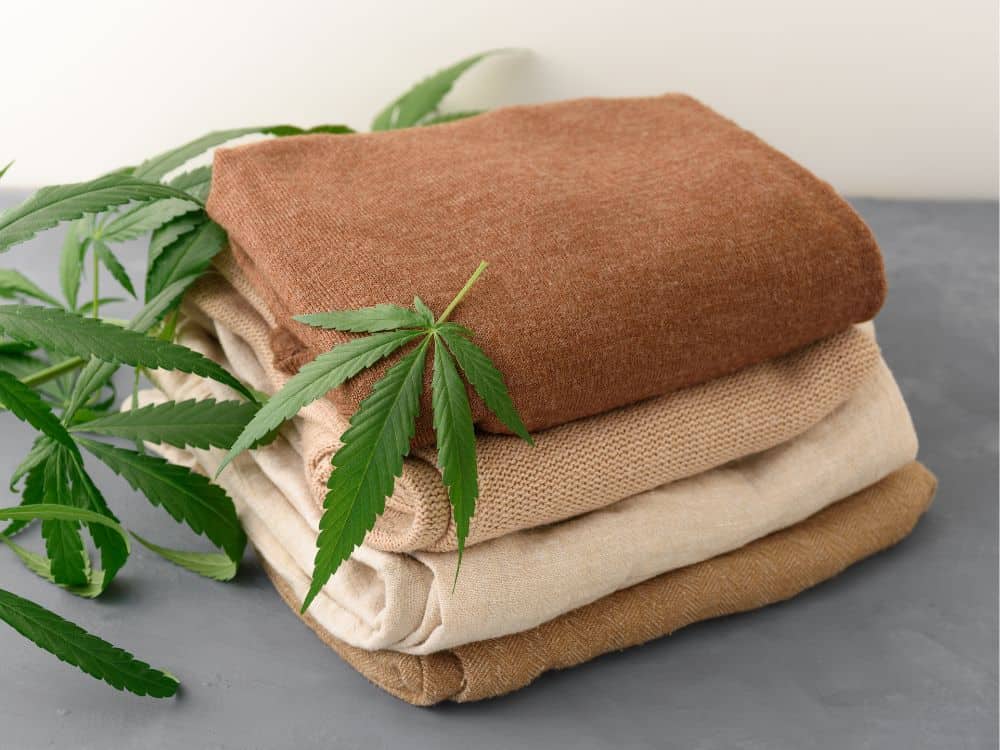Great Advice To Deciding On Bamboo Clothes
Wiki Article
Why Is Hemp So Sturdy And Durable? Is It Also More Regenerative?
Hemp is thought to be more biodegradable due its inherent properties and the way hemp is grown. Here's why- Biodegradability-
Natural Fiber- Hemp is a natural plant fiber, and its fibers are biodegradable. Textiles and clothing made of hemp decompose in time. This means that they return to nature without leaving behind any waste. Contrast this with synthetic fibers like polyester, which may take hundreds of years to break down.
Hemp Textiles do not contain synthetic additives They do not contain synthetic additives. Hemp fibers usually don't have any synthetic additives. Contrary to this, some textiles are treated with synthetic chemicals like certain finishes or dyes, which may slow down the biodegradation process.
Durability-
Hemp is known for its strength and durability. Clothing and textiles made from hemp tend to be less likely get damaged, and last longer than cotton-based products. That means hemp clothing will last longer, even before it starts to show signs of wear and tear.
Hemp fabric is less likely to pill than cotton. This is a factor that helps to prolong their life as well as overall quality.
Regenerative Agriculture-
Soil Health Hemp cultivation can be regenerative when it is done sustainably. Hemp cultivation sustainably has a deep-rooted system which will prevent soil compaction. This system of roots can also help prevent erosion. This aspect of regenerative could leave the soil in a better state to grow future crops.
Low environmental impact. Methods for producing sustainable hemp tend to be characterized by a low level of use of pesticides or weedicides. This helps reduce environmental damage. The cultivation of cotton using synthetic chemicals is more likely to result in erosion of soils and degrade the quality of water.
Water Efficiency-
Hemp requires less water for development than cotton. Hemp's drought-resistant nature allows it to grow in low-water conditions or with rain. This makes it an ideal choice for areas with scarce water resources.
Crop Rotation- Hemp is a good choice to incorporate into systems of crop rotation, which can improve overall soil health and reduce the risk of soil depletion and build-up of diseases. In cotton farming the practice of rotation is less widespread.
Flexibility- Hemp is a great material in many different applications, such as clothing, textiles and paper, construction materials, and more. The versatility of hemp implies that it is able to support a variety of industries using sustainable, regenerative practices.
While hemp offers these advantages, it's important to note that both cotton and hemp can be made sustainably or not, based on farming practices and the methods used to process them. It is preferential to purchase hemp products that are made using sustainable and ethical practices. This will maximize the environmental benefits of hemp. Making the choice to buy organic cotton can also reduce the environmental problems that are associated with conventional cotton production. Read the best hemp clothes for more advice including hemp wear, hemp clothing near me, organic hemp clothing, hemp t shirt mens, dash hemp clothing, hemp jacket, american made hemp clothing, hemp trousers, mens hemp clothing, hemp shirts wholesale and more.

What Is The Hemp-Based Clothing's Performance To Other Fibres In Terms Of Performance And Quality?
Hemp clothing offers a variety of practical and technical advantages in comparison to traditional fabrics. It's also eco friendly. Hemp clothing has numerous advantages that make it an excellent eco-friendly and high-performance choice.
Hemp fibers are highly breathable and moisture-wicking, making hemp clothing comfortable under a variety of conditions. They are able to help wick away moisture from the skin, keeping you cool in hot weather.
Temperature Regulation
Hemp clothing has excellent thermoregulatory abilities. It will keep you warm by storing warmth close to you, and can also assist you in staying cool in hot temperatures. This natural regulation of temperature could reduce the need to change clothing often.
Durability and long-term durability-
Hemp fibers are durable. Hemp clothing tends to be more durable and resistant to wear and tear compared to other traditional fibers such as cotton. The result is that hemp clothing can last a lot longer. This also means less need for frequent replacements.
UV Protection
Hemp fibers protect the skin from harmful UV radiations. This can be particularly useful when you are outdoors.
Biodegradability:
Hemp clothes are biodegradable. This means that it degrades in a natural way in time. It's an excellent method to reduce the amount of textile waste and its impact on the environment.
Low Environmental Impact
Hemp cultivation is less dependent on synthetic pesticides as compared to cotton. Hemp also consumes less water making it an environmentally friendly alternative. The eco-friendly qualities of hemp cultivation that is organic are even more pronounced.
Carbon Sequestration-
Hemp plants can capture carbon dioxide from the atmosphere in the course of their growth. In this way, hemp can serve as a carbon sink in order to help reduce greenhouse gas emissions.
Crop rotation and sustainability-
Hemp can be easily incorporated into crop-rotation systems that improve the overall health of the soil. It also decreases the risk of soil loss or the accumulation of disease. The hemp's environmental impact is improved by this method of sustainable farming.
Versatility:
Hemp fibers are mixed with other materials, like organic cotton or recycled polyester, to create high-performance and eco-friendly fabric blends. This lets textiles be innovative and eco-friendly.
Low Toxicity
Hemp is naturally low in harmful substances and does not require extensive processing with chemicals to make it, thus reducing environmental impact.
It is important to remember that although hemp offers many benefits for the environment and is functional but the sustainability of clothing depends on other factors such as dyeing processes as well as transportation and ethical methods of labor. Consumers who want to be environmentally conscious should choose clothing brands that use hemp and other sustainable fibres and place a high value on transparency and ethical manufacturing practices. Take a look at the most popular go here for hemp clothing for more tips including hemp and cotton fabric, hemp sweatshirt, patagonia island hemp pants, patagonia island hemp pants, organic hemp hoodie, hemp shirts mens, hemp underwear, hemp yoga pants, hemp clothing, american made hemp clothing and more.

What is the main difference between hemp fiber and bamboo fibre?
Hemp and bamboo are two distinct plant-based fibers that are used in textile manufacturing each with their own unique qualities and characteristics. Here are the major differences between bamboo and hemp fibers. Plant Source-
Hemp- Hemp fibres are formed from the outer layer of the stalks. Hemp is a versatile plant that grows quickly and was used in the production of various products for centuries.
Bamboo- Bamboo fibres are produced by the cellulose of bamboo plants. Bamboo is known as a species of grass with rapid growth and for its capacity to regenerate rapidly.
2. Fiber Characteristics
Hemp- Hemp is known for its durability and strength. They're one of the strongest natural fibers and get softer each time they're washed, so they make great textiles.
Bamboo- Bamboo fibres are silky soft with a smooth, silky texture. The fibers are not as strong than hemp, and are more delicate. However they are extremely sought-after for their comfort when placed against the skin.
3. Texture, Feel and Look-
Hemp- Hemp has a somewhat coarse texture, particularly in its natural form. While it is a comfortable fabric, the texture is distinct from bamboo.
Bamboo- Bamboo is smooth, soft, and silky. It is often described as feeling like a mixture of cotton and silk, which makes it extremely comfy to wear.
4. Breathability and Moisture-Wicking-
Hemp- Hemp is naturally and breathable. Hemp also absorbs water. They can help you stay cool and dry in hot weather.
Bamboo Fibers- Bamboo fibres possess a high level of breathability and moisture wicking. They contain micro-gaps, which improve their ability to regulate humidity and temperature. This ensures that you are at ease in all conditions.
5. Environmental Impact-
Hemp Hemp is a fiber that's considered eco-friendly due to the fact that it needs little water, is able to grow quickly and has a great resistance to pests. It also lowers herbicide and pesticide usage. It also helps remove carbon dioxide from atmosphere as it expands.
Bamboo is regarded as a sustainable material. It is extremely durable, is fast growing and requires only a tiny amount of water. Certain varieties of bamboo are thought to be extremely sustainable, like Moso bamboo.
6. Processing-
Hemp- Hemp fibres need extensive processing to separate outer bast fibers and the woody core inside. Processing may include decoration, retting, or mechanical separation.
Bamboo fibres typically obtained through a chemical procedure called the viscose or rayon procedure. This involves chemically breaking down bamboo pulp. Closed-loop systems are used to eliminate the chemical waste from some bamboo textiles.
7. Versatility-
Hemp- Hemp fibres can be used for a wide range of purposes, such as clothing, textiles, and paper. They also make excellent construction materials.
Bamboo fibers- Bamboo fibers are used primarily in textiles and clothing, but they are also used in other products, such as towels and bedding.
Both bamboos and hemps provide advantages when it comes to sustainability and unique qualities. The choice between these two depends on which qualities you seek in a textile and your environmental preference. Follow the recommended bamboo clothing for site tips including boody bamboo underwear, bamboo cotton shirts, bamboo hoodie women's, ladies bamboo tops, bamboo cay shirts, rayon from bamboo fabric, bamboo hoodie women's, t shirts bamboo, bamboo trousers mens, bamboo maternity and more.
